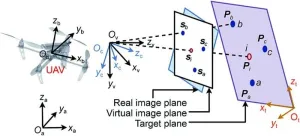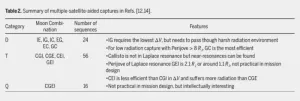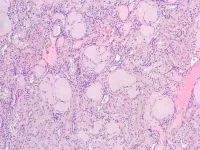(Press-News.org) NYU Langone Health’s MCIT Department of Health Informatics, Institute for Innovation in Medical Education, and Institute for Excellence in Health Equity will hold the first Generative AI Prompt-A-Thon in Health Care on Aug 18. During the event, teams of clinicians, educators, and researchers will work together to find artificial intelligence (AI)-powered solutions to healthcare challenges using real-world, de-identified patient data.
The event addresses large language models (LLMs) that predict likely options for the next word in any sentence, paragraph, or essay, based on how real people used words in context billions of times in documents on the internet. Also called generative AI, such systems randomly fill in a mix of probable next words to give a feeling of variety and creativity. A side effect of this next-word prediction is that the models are “skillful” at summarizing long texts, extracting key information from databases, and generating human-like conversations as chatbots.
Despite these advancements, such AI programs do not think, and can produce conclusions and references that do not exist, say the event organizers. Thus, they require close supervision by human users, especially in healthcare, where the technology has the potential to increase safety and improve care.
Anticipating the generative AI field boom, NYU Langone Health requested access in March – from Microsoft, a partner with the company that created chatGPT, OpenAI – to the company’s latest, generative AI tool. Azure is Microsoft’s cloud computing platform through which it offers private instances of GPT4, the newer relative of the famous LLM chatGPT, to clients like NYU Langone. In doing so, the application gave the health system’s teams secure access to software and servers that have enabled the tool to meet federal privacy standards.
“We have in place one of the nation’s first privately managed, secure, and HIPAA-compliant GPT4 ecosystems in a healthcare organization,” says Nader Mherabi, executive vice president, vice dean, and chief digital and information officer at NYU Langone Health. “This has enabled the launch of a large-scale effort to test potential healthcare uses of large language models like GPT4 in a safe and responsible manner.”
NYU Langone doctors, nurses, and administrators, having agreed to strict conditions, can now write prompts to the institution’s private instance of GPT4, and assess how well it generates patient-friendly explanations, suggests improvements in care plans, or flags potential safety issues.
“Equally important is the ability of our workforce to identify these models’ limitations,” adds Jonathan Austrian, MD, associate chief medical information officer for Inpatient Informatics. Even when new uses are found for GPT4, he says, every AI output would serve only to augment care providers’ work.
Prompt-a-thon Details
During the Aug. 18 event, teams made up of clinicians, educators, and researchers will work together to test GPT4-based solutions to healthcare challenges with real-world, de-identified patient data. To be held in NYU Langone’s Science Building, the event day will start with “lightning round” talks by NYU Langone experts:
Marc Triola, MD, associate dean for educational informatics; on the new world of AI in healthcare
Tim Requarth, PhD, lecturer in science and writing for the Vilcek Institute of Graduate Biomedical Sciences on using AI tools for scientific writing
Lavender Jiang, BSc, a doctoral student at the NYU Center for Data Science, on the NYUTron AI Doctor project
Kellie Owens, PhD, assistant professor in the Department of Population Health, on the ethics of generative AI in healthcare
Yindalon Aphinyanaphongs, MD, PhD, director, operational data science and machine learning at NYU Langone. He leads our Department of Health Informatics Predictive Analytics Unit, and will preview the day’s activities.
During lunch (11:30 am-12:30 am), the attendees (80 selected registrants out of over 400 submissions) will join their pre-assigned four-person teams to determine what problems they will choose to solve during the workshop portion of the event. Attendees were previously grouped into teams based on their generative AI interests and backgrounds. Common interests included patient education, diagnosis and treatment, and diversity and equity. Research-themed groups will focus on grant-writing support and summarizing research literature. Beyond their interests, the working groups will also be organized so that there is a mix of comfort levels with GPT4, from having no experience to being seasoned experimenters. Following lunch, attendees will head to their meeting rooms to begin work on their projects (12:30-2:30 pm). AI mentors, along with fellow participants, will support each team during their “prompt journey.”
Large-Scale AI Effort
The Prompt-a-thon is part of a larger effort at NYU Langone Health to empower the workforce on the potential benefits of Generative AI. The MCIT Department of Health Informatics provided exploratory access to the health system’s private instance of GPT4 to more than 200 doctors, nurses, researchers, and educators to experiment with the health system’s private instance of GPT4. Additionally, more than 100 people have submitted formal project requests, with approved efforts receiving expert AI mentorship to ready the solutions for real-world use.
“Given the tool’s recent arrival and the degree of interest, many of those with generative AI ideas have not yet had individual sessions with the AI leadership team,” says Paul Testa, MD, JD, MPH, chief medical information officer for NYU Langone. “So our goals for the Prompt-a-thon are to give many more employees the chance to explore their ideas, and connect with other members of the NYU Langone Health Generative AI community.”
An example of promising generative AI solutions in development at NYU Langone includes a project led by Fritz Francois, MD, chief of hospital operations, who is exploring the benefits of a Generative AI model that can review clinical notes to find instances where two medication types, anticlotting drugs and immunosuppressive drugs, were documented in the care plan but were absent from the patient’s active medication list. In these cases, the AI sends a prompt to the physicians alerting them to this potential discrepancy; This project recently went live across the health system, becoming its first deployed Generative AI intervention in clinical care.
“While such mismatches are exceedingly rare, generative AI promises to help to eliminate them entirely,” adds Testa. “It is important that while NYU Langone is already among the safest of health care systems, we are working to be a responsible steward of new technologies that can further drive safety.”
NYU Langone’s rapid adoption of generative AI is built on years of experience in applying more traditional, machine-learning AI models to clinical care. This includes those that address natural language processing like the NYU-specific LLM, called NYUTron and published in Nature in July 2023, which reads physicians’ notes to accurately estimate patients’ length of hospital stay and other factors important to care. Other rules-based, pattern-recognizing, machine-learning projects scan imaging results and EKG readings to flag potentially unidentified disease in patients (i.e., pre-diabetes using the single-lead EKGs found in Apple watches). Some older AI models have the potential to be “supercharged” by combining them with generative AI.
In addition, large language models are coming online at NYU Langone as part of a health system that spent ten years building 83 data informatics dashboards that together monitor about 750 measures of safety and effectiveness of care (e.g. can flag a spike in infections on a certain hospital floor).
Follow updates from the Generative AI Prompt-A-Thon in Health Care on Twitter/X with the hashtags #NYUAI and #PromptAThon.
Media Inquiries:
Greg Williams
212-404-3500
gregory.williams@nyulangone.org
END
NYU Langone Health to Hold AI “Prompt-a-thon” Event
Clinicians, educators, and researchers paired with AI experts to solve problems
2023-08-18
ELSE PRESS RELEASES FROM THIS DATE:
Ancient metal cauldrons give us clues about what people ate in the Bronze Age
2023-08-18
Archaeologists have long been drawing conclusions about how ancient tools were used by the people who crafted them based on written records and context clues. But with dietary practices, they have had to make assumptions about what was eaten and how it was prepared. A new study published in the journal iScience on August 18 analyzed protein residues from ancient cooking cauldrons and found that the people of Caucasus ate deer, sheep, goats, and members of the cow family during the Maykop period (3700–2900 BCE).
“It’s really exciting to get an idea of what people were making ...
US can cut building emissions by up to 91%, saving $100 billion per year in energy-related costs, modeling study shows
2023-08-18
The US has committed to reaching net-zero emissions by 2050. To accomplish this goal, large cuts in emissions are necessary, especially in high-emission sectors like the building industry. In an article publishing on August 18 in the journal One Earth, a team of researchers use a computational model to analyze several scenarios of future building energy use in the US. They find that by tackling emissions on multiple fronts and placing focus on “demand-side measures” that affect how power is drawn from the ...
Stanford study shows how the meat and dairy sector resists competition from alternative animal products
2023-08-18
The summertime barbecue – an American tradition synonymous with celebrating freedom – may be tainted by a decidedly unfree market. A new Stanford study reveals how meat and dairy industry lobbying has influenced government regulations and funding to stifle competition from alternative meat products with smaller climate and environmental impacts. The analysis, published Aug. 18 in One Earth, compares innovations and policies related to plant-based meat alternatives and lab-grown meat in the U.S. and European Union. Its findings could help ensure ...
Women’s adherence to healthy dietary patterns and outcomes of infertility treatment
2023-08-18
About The Study: The findings of this study that included 612 women suggest that adherence to preconception healthy dietary patterns before infertility treatment may be associated with a lower likelihood of pregnancy loss.
Authors: Jorge E. Chavarro, M.D., Sc.D., of the Harvard T. H. Chan School of Public Health in Boston, is the corresponding author.
To access the embargoed study: Visit our For The Media website at this link https://media.jamanetwork.com/
(doi:10.1001/jamanetworkopen.2023.29982)
Editor’s Note: Please see the article for additional information, including ...
Structural racism and adolescent mental health disparities in Northern California
2023-08-18
About The Study: In a racially and ethnically diverse cohort of 34,000 adolescents, those from neighborhoods with extreme concentrations of racial and economic disadvantage were more likely to screen positive for depressive symptoms and suicidality at well-teen visits compared to their counterparts from the most racially and economically privileged neighborhoods.
Authors: Julia Acker, M.S., of the University of California, Berkeley, is the corresponding author.
To access the embargoed study: Visit our For The Media website at this link https://media.jamanetwork.com/
(doi:10.1001/jamanetworkopen.2023.29825)
Editor’s ...
Telemedicine visits in skilled nursing facilities
2023-08-18
About The Study: Telemedicine was rapidly adopted in skilled nursing facilities (SNFs) in early 2020 but subsequently stabilized at a low use rate that was nonetheless higher than before 2020 in this study of more than 4.4 million residents at 15,000 SNFs. Higher telemedicine use in SNFs was associated with improved access to psychiatry visits in SNFs.
Authors: Michael L. Barnett, M.D., M.S., of the Harvard T. H. Chan School of Public Health in Boston, is the corresponding author.
To access the embargoed study: Visit our For The Media website at this link https://media.jamanetwork.com/
(doi:10.1001/jamanetworkopen.2023.29895)
Editor’s ...
Caution: Living alone puts people with cognitive decline at risk
2023-08-18
An estimated 1 in 4 older Americans with dementia or mild cognitive impairment lives alone and is at risk of practices like unsafe driving, wandering outside the home, mixing up medications and failing to attend medical appointments.
In a study publishing in JAMA Network Open on Aug. 18, 2023, researchers led by UC San Francisco concluded that the United States health system is poorly equipped to serve patients living solo with cognitive decline, a group whose numbers are predicted to swell as the population ages.
For these patients, living alone ...
Cutting-edge UAV technology: New method for dynamic target tracking in GPS-denied environments
2023-08-18
A study published in Engineering introduces a novel image-based visual servoing (IBVS) method for unmanned aerial vehicles (UAVs) to track dynamic targets in GPS-denied environments. Titled "Dynamic Target Tracking of Unmanned Aerial Vehicles Under Unpredictable Disturbances," the research article presents a comprehensive approach that addresses the challenges of estimating target velocities, image depth estimation, and tracking stability in the presence of external disturbances.
The proposed method utilizes a constructed virtual camera to derive simplified and decoupled image dynamics for underactuated UAVs. By considering ...
Scientists reviewed the trajectory design and optimization for Jovian system exploration
2023-08-18
The Jovian system has greatly attracted the interest of human exploration because of the important scientific value. However, Jupiter and its 4 Galilean moons form a unique and complex multi-body dynamical environment that greatly challenges trajectory design and optimization. Moreover, the extremely strong radiation environment of Jupiter and the low available fuel of spacecraft further increase the difficulty of trajectory design. In order to satisfy the requirements of diverse missions of the Jovian system exploration, develop new mission concepts, and obtain higher merit with lower cost, a variety of theories and methodologies of ...
Japanese squirrels develop human hereditary diseases with aging
2023-08-18
A research group led by Dr. Tomoaki Murakami from the Tokyo University of Agriculture and Technology has revealed that fibrinogen Aα-chain amyloidosis, a previously unreported disease in animals other than humans, is highly prevalent in Japanese squirrels (Sciurus lis). In this study, they compared the pathology with that of humans, and suggested the importance of Japanese squirrels in the comparative pathological analysis of fibrinogen Aα-chain amyloidosis.
The researchers published their results on August 8th in the Journal of Pathology.
Amyloidosis is a disease group in which amyloid, generated by misfolding ...
LAST 30 PRESS RELEASES:
Sally C. Morton, executive vice president of ASU Knowledge Enterprise, presents a bold and practical framework for moving research from discovery to real-world impact
Biochemical parameters in patients with diabetic nephropathy versus individuals with diabetes alone, non-diabetic nephropathy, and healthy controls
Muscular strength and mortality in women ages 63 to 99
Adolescent and young adult requests for medication abortion through online telemedicine
Researchers want a better whiff of plant-based proteins
Pioneering a new generation of lithium battery cathode materials
A Pitt-Johnstown professor found syntax in the warbling duets of wild parrots
Cleaner solar manufacturing could cut global emissions by eight billion tonnes
Safety and efficacy of stereoelectroencephalography-guided resection and responsive neurostimulation in drug-resistant temporal lobe epilepsy
Assessing safety and gender-based variations in cardiac pacemakers and related devices
New study reveals how a key receptor tells apart two nearly identical drug molecules
Parkinson’s disease triggers a hidden shift in how the body produces energy
Eleven genetic variants affect gut microbiome
Study creates most precise map yet of agricultural emissions, charts path to reduce hotspots
When heat flows like water
Study confirms Arctic peatlands are expanding
KRICT develops microfluidic chip for one-step detection of PFAs and other pollutants
How much can an autonomous robotic arm feel like part of the body
Cell and gene therapy across 35 years
Rapid microwave method creates high performance carbon material for carbon dioxide capture
New fluorescent strategy could unlock the hidden life cycle of microplastics inside living organisms
HKUST develops novel calcium-ion battery technology enhancing energy storage efficiency and sustainability
High-risk pregnancy specialists present research on AI models that could predict pregnancy complications
Academic pressure linked to increased risk of depression risk in teens
Beyond the Fitbit: Why your next health tracker might be a button on your shirt
UCSB scientists bottle the sun with liquid battery
Lung cancer drug offers a surprising new treatment against ovarian cancer
When consent meets reality: How young men navigate intimacy
Siemens Healthineers and Mayo Clinic expand strategic collaboration to enhance patient care through advanced technology
Physicists develop new protocol for building photonic graph states
[Press-News.org] NYU Langone Health to Hold AI “Prompt-a-thon” EventClinicians, educators, and researchers paired with AI experts to solve problems



